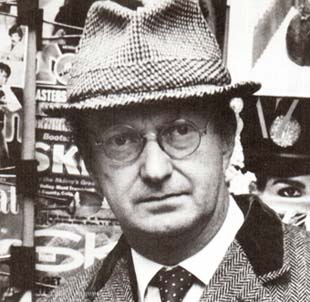A Quote by Bertrand Russell
There are some simple maxims which I think might be commended to writers of expository prose. First: never use a long word if a short word will do. So, if you want to make a statement with a great many qualifications, put some of the qualifications in separate sentences. Third: do not let the beginning of your sentence lead the reader to an expectation which is contradicted by the end.
Related Quotes
Do not put statements in the negative form. And don't start sentences with a conjunction. If you reread your work, you will find on rereading that a great deal of repetition can be avoided by rereading and editing. Never use a long word when a diminutive one will do. Unqualified superlatives are the worst of all. De-accession euphemisms. If any word is improper at the end of a sentence, a linking verb is. Avoid trendy locutions that sound flaky. Last, but not least, avoid cliches like the plague.
Never use a metaphor, simile, or other figure of speech which you are used to seeing in print. Never use a long word where a short one will do. If it is possible to cut a word out always cut it out. Never use the passive voice where you can use the active. Never use a foreign phrase a scientific word or a jargon word if you can think of an everyday English equivalent. Break any of these rules sooner than say anything outright barbarous.
The secret of good writing is to strip every sentence to its cleanest components. Every word that serves no function, every long word that could be a short word, every adverb that carries the same meaning that’s already in the verb, every passive construction that leaves the reader unsure of who is doing what—these are the thousand and one adulterants that weaken the strength of a sentence. And they usually occur in proportion to the education and rank.
If I looked at some of these pieces as if this project was not spoken-word but just short anthology, I probably would have fussed with some of the sentences, you know? Syllabication and prosody and such crap. Because the printed word is etched in stone. But for reading purposes I accepted this book of texts in the manner in which I wrote them, no need to fuss. Most of the shorter stuff was written as poetry. Meaning lots of white space on the page.
You can, in short, lead the life of the mind, which is, despite some appalling frustrations, the happiest life on earth. And one day, in the thick of this, approaching some partial vision, you will (I swear) find yourself on the receiving end of - of all things - an "idea for a story," and you will, God save you, start thinking about writing some fiction of your own. Then you will understand, in what I fancy might be a blinding flash, that all this passionate thinking is what fiction is about, that all those other fiction writers started as you did, and are laborers in the same vineyard.
I venture to claim two qualifications for the great office which I hold, which to my mind, without making invidious distinctions, is one of the most important that can be held by any Englishman; and those qualifications are that in the first place I believe in the British Empire, and in the second place I believe in the British race. I believe that the British race is the greatest of the governing races that the world has ever seen.
People often ask me why my style is so simple. It is, in fact, deceptively simple, for no two sentences are alike. It is clarity that I am striving to attain, not simplicity. Of course, some people want literature to be difficult and there are writers who like to make their readers toil and sweat. They hope to be taken more seriously that way. I have always tried to achieve a prose that is easy and conversational. And those who think this is simple should try it for themselves.
Most people write the same sentence over and over again. The same number of words-say, 8-10, or 10-12. The same sentence structure. Try to become stretchy-if you generally write 8 words, throw a 20 word sentence in there, and a few three-word shorties. If you're generally a 20 word writer, make sure you throw in some threes, fivers and sevens, just to keep the reader from going crosseyed.
I feel like the reason I ended up becoming a playwright is because I never choose the right word. As a kid, my fantasy profession was to be a novelist. But the thing about writing prose - and maybe great prose writers don't feel this way - but I always felt it was about choosing words. I was always like, "I have to choose the perfect word." And then it would kill me, and I would choose the wrong word or I would choose too many perfect words - I wrote really purple prose.
Some good leaders are rough around the edges and some leaders are difficult. Some have difficult personalities and some are really nice to be around, but those are not the qualifications. The qualifications are their desire to see us achieve more, their desire to push us to be the best we can be. Not for their selfish gain, but because they believe that we have something to offer.
I tried to read The Dubliners, when I went to Dublin a couple of years ago. I think I only go thurogh the first story. Gnomon is such an interesting word. So many different uses for a word nooone has heard of, or uses these days. I googled some pictures of sundials to check that it was the tall shadow casting bit (it is) and then discovered that Saint Sulpice in Paris has a rather fascinating large gnomon- which I shall endeavour to see on my next visit to that fair city. Thanks for such a great word, which I shall try to remember.



































